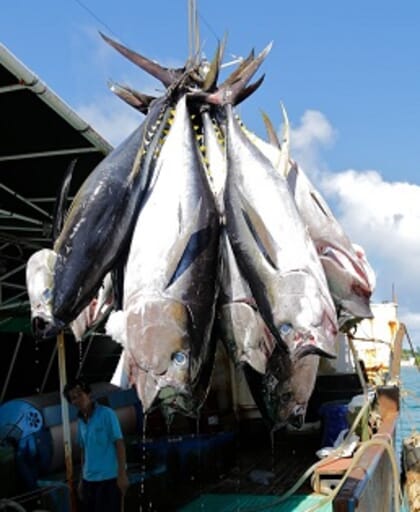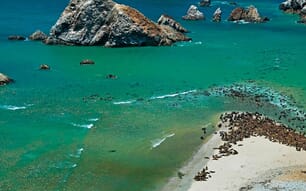The first South Korean-owned fishery has achieved certification to the Marine Stewardship Council’s (MSC) international standard for sustainable fishing. The certification applies to free school yellowfin and skipjack tuna caught by 12 purse seine freezer vessels operating in the Western Central Pacific Ocean (WCPO) and owned by Korea’s leading fishing company, Dongwon Industries.

Dongwon Industries is one of ten of the world’s largest seafood companies, taking part in the Seafood Business for Ocean Stewardship (SeaBOS) initiative. The initiative which started in 2016 aims to stimulate transformative change towards ocean stewardship. The MSC was an advisor to the inaugural SeaBOS convening in Soneva Fushi in November 2016.
Rupert Howes, Chief Executive of the MSC said: “I would like to offer my congratulations to Dongwon for this historic certification. We hope this achievement will lead to other South Korean fisheries entering into the MSC assessment process to demonstrate their commitment to ocean sustainability and the stewardship of our precious ocean resources. I would also like to extend my congratulations and thanks to the all the fishers involved in this certification and the management agency.”
In depth assessment
The certified fishery was assessed to the 28 principles for sustainable fishing set out in the MSC Fisheries Standard by conformity assessment body, Control Union. The most recent stock assessments show that yellowfin and skipjack stocks in the WCPO are sustainable. With 99 percent the catch made up of skipjack and yellowfin, the fishery has minimal impacts on other species. It also has strong management and governance in place. This includes 100 percent observer coverage and real time monitoring via a remote Fisheries Monitoring Centre in Busan.
Dr Myoung Woo Lee, President & CEO of Dongwon Industries said: “It’s a great honour to achieve the first MSC fishery certification in Korea. By achieving the most prestigious certification, we are now able to give even further confidence to our customers that our operations are duly carried out in accordance with international regulations and international best practices. It also ensures sustainability, transparency and traceability within our operation, through which we hope to lead sustainable fishing in Korea, as the first and only MSC fishery certification holder in Korea. We are sincerely excited about the certification and the role that we are about to take on in Korea and in international stages, as a leader in sustainable fishing. We hope that MSC certification will continue to champion its status as de facto world's most renowned standard in sustainability.”
Areas for ongoing improvement
Like all other tuna fisheries operating in the WCPO, in order to ensure that the fishery can respond to future changes in the health of these tuna stocks, certification is conditional upon the adoption of harvest strategies including harvest control rules, by all member states of the Western Central Pacific Fisheries Commission (WCPFC) by 2021. The fishery is also required to further demonstrate that it is not having a detrimental impact on manta and mobula rays.
Taking MSC labelled tuna to market
Tuna caught by the fishery is landed in Busan, Masan, and Mokpo in South Korea, Bangkok (Thailand), General Santos (Philippines), Ho Chi Minh and Cam Rahn (Vietnam), Manta (Ecuador), Mazatlán and Manzanillo (Mexico).
Before tuna from the fishery can be sold with the blue MSC label, Dongwon will need to complete a traceability assessment to earn certification to the MSC’s Chain of Custody Standard. This will ensure that only tuna caught using free school fishing methods is labelled as MSC certified.



